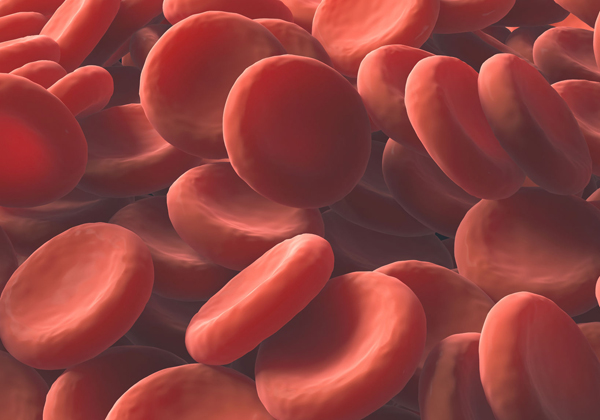Researchers have identified a new mechanism by which platelets impair T cell activity. This finding could help biopharmaceutical companies develop more effective immunotherapies by blocking the production of platelets.
Platelets are fragments of other cell types that originate in the bone marrow and eventually make their way into the circulation. While their role in the blood clotting response has been well-characterized, new research has found that these platelets also play a role in angiogenesis, wound healing and the function of the immune system in patients with cancer.
“Cancer is actually a wound; more specifically, cancer represents a chronically unhealed wound because of cancer invasion and disruption of the normal tissues,” said principal investigator Dr. Zihai Li, Chairman and Professor in the Department of Microbiology & Immunology at the Medical University of South Carolina. “Naturally, such a process triggers wound healing or tissue repairing mechanisms.
“Platelets – which are very abundant components of the blood – are always mobilized to the site of injury for stopping bleeding and repairing tissue injury. Unfortunately, those platelets can also produce very potent factors to suppress the immune response, which is what we discovered in this study. In other words, too many platelets at the site of the tumor will suppress T cells and are therefore detrimental to cancer immunotherapy.”
Previous studies have shown that conditions in which the body overproduces platelets – known as thrombocytosis – have been linked to multiple cancer types, but the mechanism behind this phenomenon has been poorly understood. Now, Li and his colleagues have found that platelets suppress T cells by secreting molecules that bind to the TGFβ receptor on the immune cells. The researchers published their findings in the journal, Science Immunology.
“Previous work by many people focuses on primarily the role of platelets in directly promoting cancer progress, invasion and metastasis,” said Li. “Our study turned people’s attention now to the role of platelets in actively suppressing T cell immune response against cancer.”
According to Li, platelets have a molecule on their cell surface known as GARP. In mouse models of melanoma, the researchers were able to show that GARP binds to TGFβ and forms a complex which subverts T cell immunity.
In addition, when GARP expression was dampened, a type of cancer immunotherapy known as adoptive T cell therapy was enhanced in mice. The researchers also tested anti-platelet drugs – such as aspirin – and found that they were able to increase the effectiveness of T cell therapy against melanoma in mice.
“We believe that our work has immediate translational implications,” said Li. “One popular form of current immunotherapy involves using agents that block immune checkpoints, such as the PD1 molecule. We’re about the launch a clinical trial testing the combination of these inhibitors and PD1 agents for the treatment of multiple cancer types, such as head and neck cancer.”












Join or login to leave a comment
JOIN LOGIN